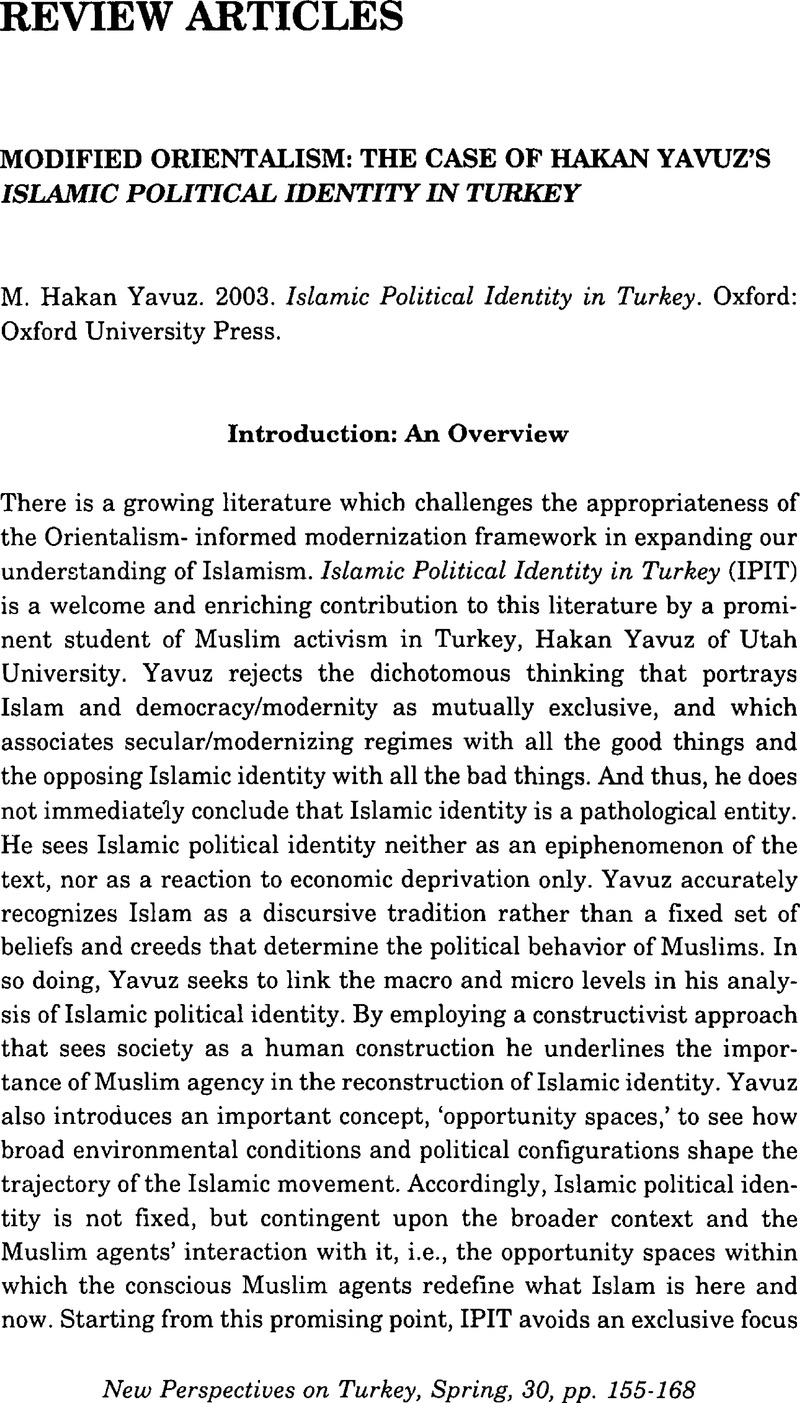Article contents
Modified Orientalism: The Case of Hakan Yavuz's Islamic Political Identity in Turkey
Review products
Published online by Cambridge University Press: 21 July 2015
Abstract

- Type
- Review Articles
- Information
- Copyright
- Copyright © New Perspectives on Turkey 2004
References
1 Çınar, Menderes, “From Shadow-Boxing to Critical Understanding: Some Theoretical Notes on Islamism as a Political Question,” Totalitarian Movements and Political Religions, vol. 3, no. 1 (Summer 2002): 35-57, p. 40CrossRefGoogle Scholar.
2 Ibid., p.41.
3 See my “Bir Siyaset Grameri Olarak Kemalizm” [Kemalism as a Grammar of Politics], Toplum ve Bilim, no. 76 ( Spring, 1998): 257–269Google Scholar; and Republican Aspects of Islamism in Turkey from the Perspective of ‘the Political’, Unpublished PhD Dissertation, (Bilkent University, Ankara, 1998)Google Scholar. I have also utilized my analysis of Kemalism in the following articles: “Rebuilding the Center: Mission Impossible,” Private View, vol. 1/2, no. 4/5 (Autumn, 1997): 72–78,Google Scholar“Siyasetin Ahlaki Varoluş Krizi ve Yeni Oluşumlar” [Moral Existence Crisis of Politics and New Formations], Birikim, no. 147 (July 2001): 42–50Google Scholar; and “From Shadow-Boxing to Critical Understanding…”
4 Yet, Yavuz fails to cite my works at the proper place on page 46. He cites my dissertation in the selected bibliography of the book, probably because footnote 53 on page 34 is a reference to my dissertation. But, this reference is irrelevant, for nowhere in my dissertation have I discussed the situation of the Islamist movement before 1970. Therefore, not only is Yavuz careless about making proper references, but he also obscures the novelty of my argument.
5 Cizre Sakallıoğlu, Ümit, “Parameters and Strategies of Islam-State Interaction in Republican Turkey,” International Journal of Middle East Studies, vol. 28, no. 2 (May 1996): 231–251CrossRefGoogle Scholar.
- 1
- Cited by


